How Chef Amanda Schonberg Helps Bakers Make $1,000 Per Day
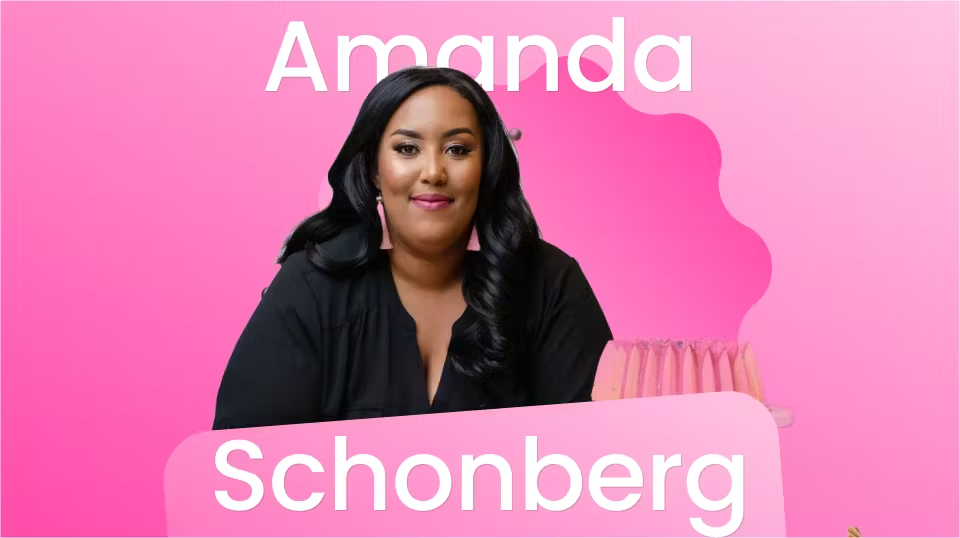
Chef Amanda Schonberg never thought it would be possible to own her own business—let alone two businesses, each of which earn six figures.
After graduating culinary school in 2011, she worked in food service management for companies like Great American Cookies, Sam’s Club, and Costco. However, she couldn’t advance in her jobs like she wanted to, and felt like she would always be stuck working for someone else.
It wasn’t until the day that one of the bakeries she worked for ran out of cake mix that her career took a new path. After disclosing to a customer asking for a custom-made cake that she didn’t have the right ingredients, the customer asked if Schonberg could bake her a cake at home. “I decided to say yes,” Schonberg tells Thinkific. “It turned out she was a local city council person. She loved it, and told all of her friends.”
“I didn’t know that it would turn into a business, but it did,” she continues. “People kept asking me for my cakes, so I founded my personal baking business in 2015.”
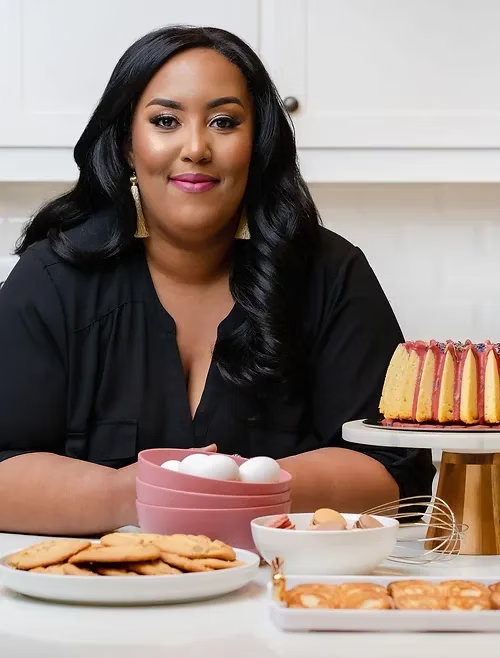
Chef Schonberg Sweets was born, which specialized in creating alcohol-infused desserts. Soon, Schonberg had celebrity clientele and repeat orders from big, corporate companies. Seeing her rapid success, aspiring home bakers began asking her for tips on how they could start their own baking business, too.
In 2021, she launched her second business, Baking For Business, to help other home bakers start, build, and market their baking business through one-on-one coaching, social media strategy, and an online Thinkific membership program. The goal: Help bakers earn $1,000 per day in sales.
Now, her online program has nearly 400 students, she hosts a top-rated podcast, and has appeared on Fox, NBC, and more. Here are eight ways she turned her knowledge into a successful business—and how you can, too.
She saw an opportunity to help others
At first, aspiring bakers asked Schonberg for tips on how to create alcohol-infused desserts like her. She started sharing recipes and baking advice via social media. Then, her audience’s questions began to shift; they wanted to know how they, too, could build a baking business from home.
“At the beginning, I thought I was only here to serve my baking clients, not those building their businesses,” says Schonberg. “But then I realized that it’s a blessing to help another person who is struggling to make sales and do the things that come easily to me.”
For Schonberg, managing Chef Schonberg Sweets was natural; since she’d worked in bakeries and stores for so many years, she took this previous management experience and applied it directly to her own business. Upon realizing that there was a need for her business knowledge, she decided that she would teach others through an online course. “I discovered that this could allow me to serve on a higher level,” she said.
“If anything, I was my own case study. I knew what was possible because if I could build my own business, so could my students.”
She took a leap of faith
To start her online course business, she partnered with another woman in 2016. “I was in charge of teaching and my partner was in charge of the technology side,” she said.
After four years of working together and teaching courses on Teachable, Schonberg decided it was time to teach on her own. “I was scared crapless,” she laughs. “But it ended up being the best decision of my life.”
She knew she wanted to run her courses in her own way, yet the technology side of teaching intimidated her. Upon finding Thinkific, though, her fears subsided.
“It was just so easy. I decided to stick with it, and I have never had any problems. If I’d known that platforms like Thinkific were available to me, I think I could have handled it better on my own from the beginning.”
She opened her Entrepreneur Community membership course the night of January 16, 2021, and ended up with five times more revenue than she had in her previous membership course of four years. “There was no more compromise,” she says. “I was able to teach in the style that I wanted and on my own time. It really paid off.”
She offered her membership for just $25 per month
After feeling disenchanted with expensive courses, she wanted to offer people more accessible pricing. This way, she could welcome as many students as possible. She also wanted to offer a longer course format. “I’ve purchased $3,000 courses that last six weeks, and then they’re over,” she explains. “It takes time to build a business, and I can’t possibly teach someone everything I know in only six weeks.”
In her first launch of the Entrepreneur Community in 2021, Schonberg charged her members $12 per month. The next year, she charged $19, and now she charges $25, which is where she thinks she’ll stay price-wise. To collect payments, she uses Thinkific’s Stripe integration.
Despite the low price point, since running her own online teaching business, she’s created six times more revenue than she did with her previous business partner.
Read more: 13 Membership Sites to Inspire You
She provided ongoing, monthly support
Schonberg wanted to do two main things through her course: provide ongoing, monthly support and help bakers increase their sales. “I wanted people to be able to take the classes and immediately apply what they’ve been taught to see an increase in business,” she says.
“I like knowing that someone is in my corner,” she continues.
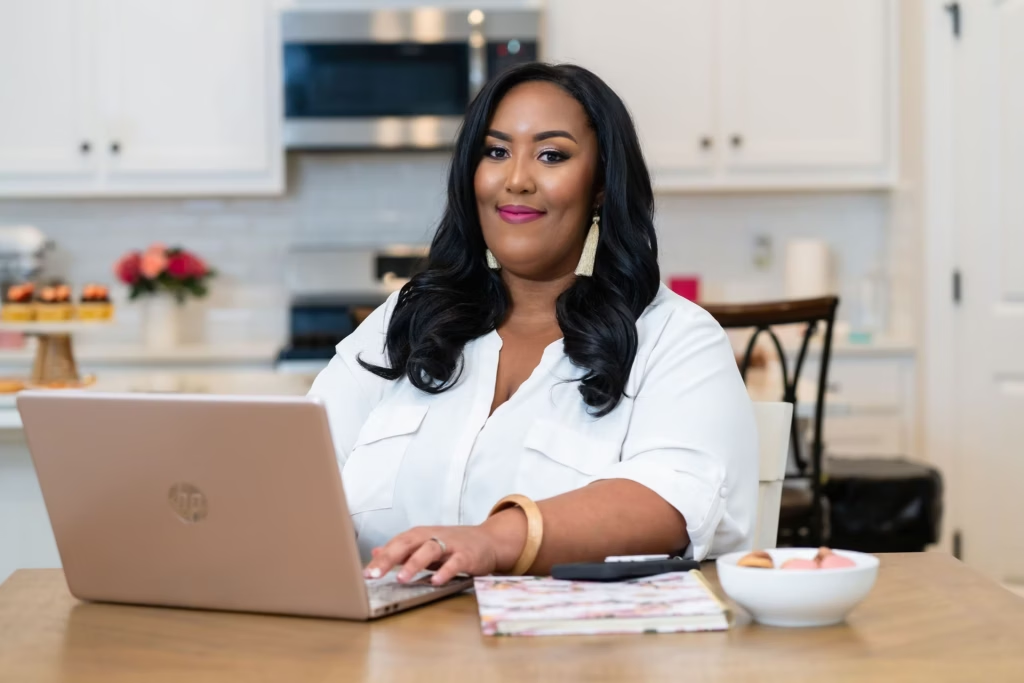
“For me, a membership is more effective than a one-off course because every single month I can check in with my students and watch them grow. Business has ups and downs and it’s never going to be perfect. I want to be there for all of it, and that’s what I love about the membership framework.”
Her membership covers everything bakers need to know to thrive in their own business: branding, marketing, promotions, sales, planning, and social media content creation. She brings in guest experts for masterclasses and Schonberg offers a live coaching call once per month. Students also have access to a library of 35 classes on topics like mindset, marketing, product creation, and retail collaborations. To stay connected, students join a community on Facebook where they can share their wins, ask questions, and network with other students.
Schonberg opens the membership for enrollment once per year. Then, once the doors are closed, students have to wait until the following year to join. In the meantime, they can join the waitlist and be notified when the cart will be open again for enrollment.
She taught her students to serve before they sell
One of the strategies she shares to help bakers and sugar artists stand out and attract daily sales is what she calls “serving before selling.”
“I encourage my students to be active in their communities and put themselves out there,” she explains. “This can be in the form of volunteering or giving back. I’m a big believer in that everything you do is a seed you’re planting.”
“When people are new, all they want to do is sell,” she continues. “The sales will come, but I always encourage my students to seek opportunities to serve—and it always comes back tenfold.”
Being of service is also what helps entrepreneurs to build community, according to Schonberg. “Too often we’re trying to do business by ourselves,” she says. “But we’re not meant to do business alone. I like to instil in my students that every single time you serve someone, that person becomes a brand ambassador.”
To Schonberg, community is invaluable—and it’s something she instills throughout her membership program. “It’s important to be able to bounce ideas off of other people,” she adds.
“Many people come to the Entrepreneur Community for the content, but stay for the community. Just knowing that you’re not alone when starting and growing your business can be super impactful.”
She marketed her course by sharing her students’ success
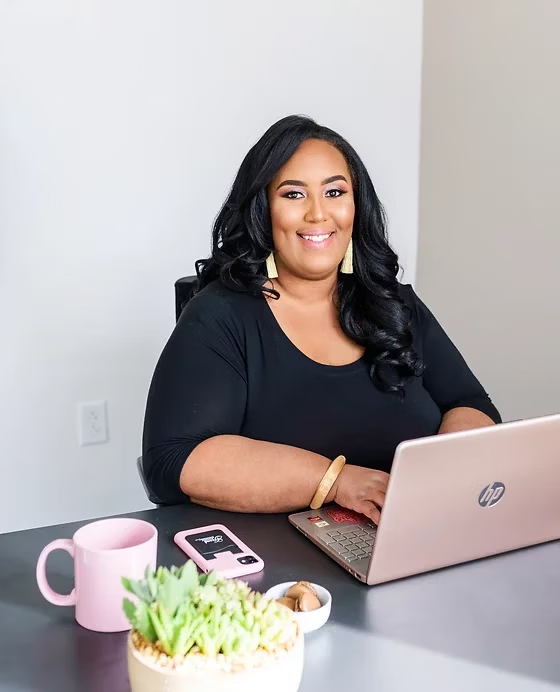
Schonberg’s audience is made up of 90% women, 80% of which are mothers. The general age group is anywhere between 27 to 45, although there is a small percentage in their 60s. While most are located in Canada and the US, some are in Europe, Africa, Jamaica, and Australia.
She markets her Entrepreneur Community via Instagram, Facebook, the Baking For Business Podcast — which is rated in the top 2.5% of podcasts—and her email newsletter content. Students join her email list when they download her free lead magnet—which is a resource guide offering advice on things like how to price your baked goods and where to sell your products in the beginning stages—that she shares on social media.
Once students sign up for her newsletter, they receive a weekly success tip straight to their inbox. “These are beginner-friendly, actionable tips that help people get used to my teaching style and what I have to offer,” she says.
Her content speaks to her audience’s pain points—helping them to overcome what they’re struggling with. However, she says that the most effective way to sell her course is by sharing her students’ success; in her membership, she has a challenge called “One K A Day,” which encourages her students to make $1,000 in sales in 24 hours.
Once they accomplish that, they get to come onto her podcast as a guest. “I think it’s one of the best ways for people to see what people in my community have accomplished, and what they’ve achieved by being a member,” she explains.
In fact, Schonberg believes that the biggest key to her success has been her students’ success. “I tell my students all the time that they’re a reflection of me,” she continues.
“My students’ success speaks volumes to what I teach. I have one member who left her job of 17 years, and another who left their job of 12 years. When I see my students pursue their business because of the knowledge and confidence that they’ve gained through my membership, to me it’s the ultimate win.”
She created content in batches
To reduce the overwhelm of running two businesses—Chef Schonberg Sweets and Baking For Business—Schonberg creates her online course marketing content in batches. This means that she sets aside one day per week where she creates her reels and short form video content for her social media.
Plus, she’s a big believer in repurposing content. “I think we tend to forget that there has to be certain messaging tied to our brand,” explains Schonberg. “We’re always looking to post something different and unique to get the views. But a lot of my content has repetitive messaging so that when a person comes to work with me, they’re familiar with my ideologies, frameworks, and beliefs.”
She shared her story—even when it felt vulnerable
In each piece of content she puts out, she instills the message that it’s possible to earn an income from home. She does so by sharing her story of how she got to where she is now. “So many people don’t share their stories because they don’t want to be thought of as a victim or burden anyone,” she says. “But sharing your story helps other people succeed because you can help someone else see themselves in you.”
“All of us will go through tests in life,” she continues. “It’s how we look at the test that will determine the opportunities that we have. In my instance, I lost my mom in culinary school in a house fire.”
At this time, she was also struggling financially.
“Fast forward now and I’m blessed to have two, six-figure businesses.”
Her best advice for aspiring online course creators is to share their stories—even when it feels vulnerable to do so. “We all have a gift that someone needs,” she says. “Don’t let technology, imposter syndrome, or any other limiting beliefs scare you. Just put yourself out there and get started, because you can always perfect yourself as you go. If you don’t get started, then you’ll never know.”
If you’re ready to step into the ring of online course creation, now is the time. Turn your knowledge into a business by signing up for Thinkific today—for free!
See related Case Studies
-
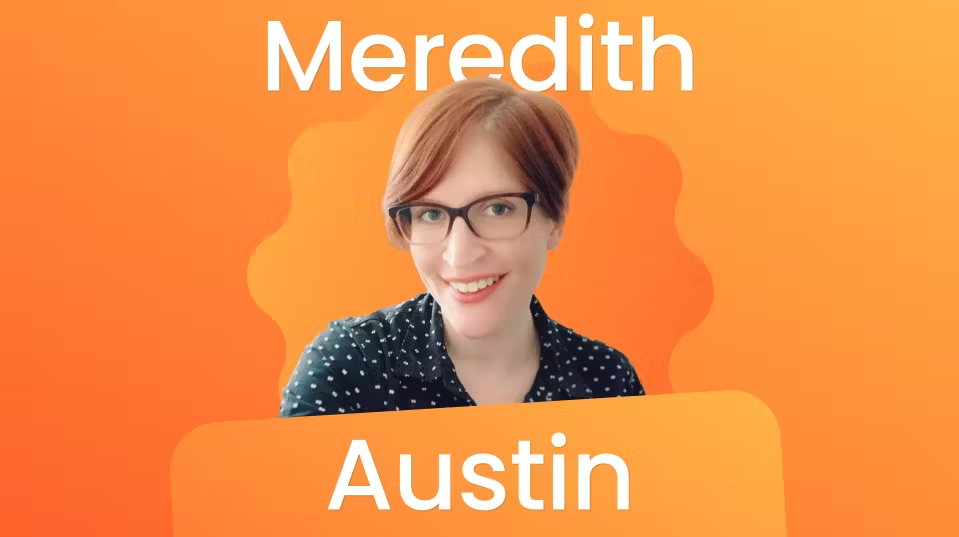
How Academity’s 12,000-Strong Community is Broadening the Definition of Gifted Education
Read more: How Academity’s 12,000-Strong Community is Broadening the Definition of Gifted EducationLearn how Texas teacher Meredith Austin developed an online education program empowering teachers nationwide.
-

How Storytelling Collective is Helping 12,000 RPG-Writers Unlock Their Creative Process
Read more: How Storytelling Collective is Helping 12,000 RPG-Writers Unlock Their Creative ProcessAshley Warren fell in love with stories when she was a little girl. Whether she was submitting fictional tales to her local library competition or
-
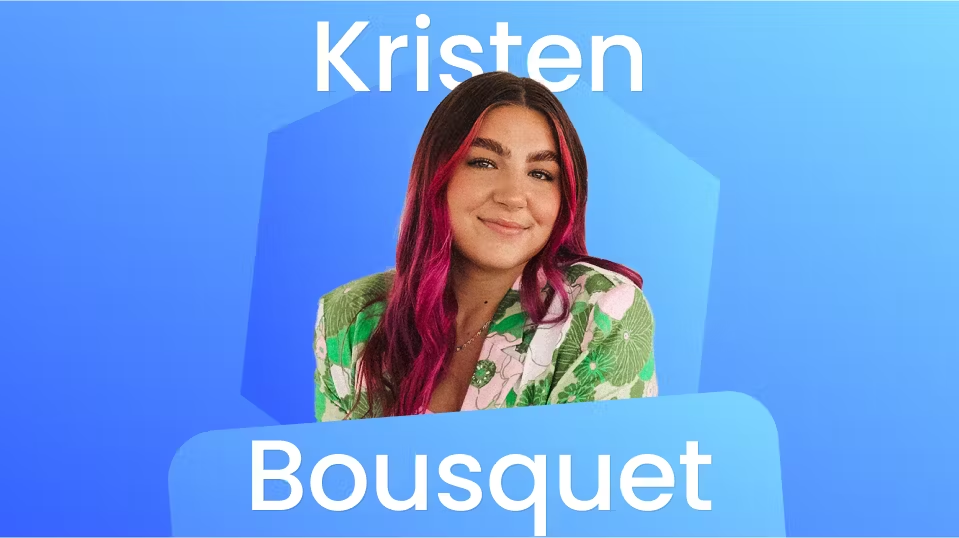
How Kristen Bousquet Helps Her (150+) Members Monetize
Read more: How Kristen Bousquet Helps Her (150+) Members MonetizeFind out how Kristen Bousquet earns more than $4,000 USD in monthly recurring revenue thanks to courses and memberships.
